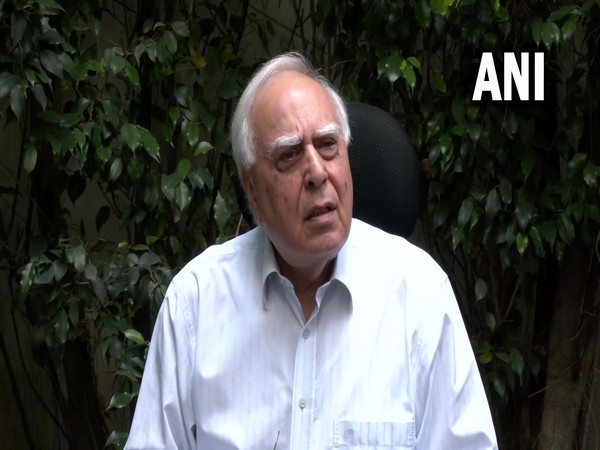A day after the Election Commission published the electoral bonds data shared by the State Bank of India, Rajya Sabha MP Kapil Sibal on Friday said that the court should constitute a Special Investigation Team (SIT) to probe the matter.
Addressing a press conference on Friday, Rajya Sabha MP asserted that the issue of electoral bonds would not be investigated by any probe agencies.
“ED and CBI are sleeping right now. If this thing happens against the Opposition they would have taken action. They have taken an overdose of sleeping pills. You must remember because I don’t, that someone (referring to PM Modi) said ‘na khaoga na khane dunga’. What happened to that? Someone (PM Modi) said that they would bring black money from the Swiss bank and transfer Rs 15 lakh each to people’s accounts, but it seems like they have transferred that money to their accounts. In my opinion, this will not be investigated by any probe agencies. Now the responsibility is on the Court to determine what will they do and what action they will take,” Sibal said.
He further said that the two major scams that have taken place in the country, are demonetization and another scam is of electoral bonds.
“Like the court done in the 2G case, where an SIT was made, in this case also an SIT should be constituted to probe the matter. We have to see how the law will see it now…It should also be found out who donated to the PM-CARES. It’s a matter of investigation which party got how many funds,” he added.
He further asserted that there are a lot of gaps in the investigation.
“There are a lot of gaps in investigation. It should also be investigated who all donated to the PM Cares fund. That’s too a big issue,” he added.
Meanwhile, data uploaded by the Election Commission of India on its website on Thursday showed that Future Gaming and Hotel Services, whose director is the lottery magnate Santiago Martin, is the top purchaser of electoral bonds having purchased bonds worth Rs 1368 crore. The data relates to a period from 2019-2024.
Megha Engineering Infrastructure Limited purchased bonds worth Rs 966 crores. As per the company website Megha Engineering and Infrastructures Limited (MEIL) is a major infrastructure company headquartered in Hyderabad, India. The company was established in 1989 and has made a name for itself in the manufacturing and engineering sectors.
Most prominent political parties have been beneficiaries of the scheme. They include the Bharatiya Janata Party, Congress, All India Anna Dravida Munnetra Kazhagam, Trinamool Congress, Telugu Desam Party, Bharat Rashtra Samithi (BRS), Shiv Sena, YSR Congress Party, Rashtriya Janata Dal, Biju Janata Dal (BJD), Aam Aadmi Party and Jana Sena Party.
Earlier on Thursday, the Election Commission uploaded the data on electoral bonds on its website as received from SBI with Future Gaming and Hotel Services and Megha Engineering and Infrastructures Ltd among the top donors to political parties.
According to the data, some of the donors include Finolex Cables Ltd, Lakshmi Niwas Mittal, Edelweiss Housing Finance Ltd, GHCL Ltd, Jindal Poly Films Limited, ITC Limited and Vedanta Limited, Grasim Industries Limited PR, Piramal Capital and Housing Finance Limited, Piramal Enterprises Ltd, Muthoot Finance Limited, Pegasus Properties Private Limited, Bajaj Finance Ltd, Bharti Airtel Limited, Apollo Tyres Limited and SpiceJet Limited.
JK Cement Ltd, DLF Commercial Developers Limited, Avon Cycles Ltd, Zydus Healthcare Limited, Cipla Limited, Dr. Reddy’s Laboratories Ltd, Mankind Pharma Limited, Qwik Supply Chain Private Limited, Haldia Energy Limited, Essel Mining and Industry Limited, Western UP Power Transmission Company Limited. Keventer Food Parks Limited, Jindal Steel and Power Limited, BG Shirke Construction Technology Pvt Ltd, Rungta Sons Pvt Ltd and Torrent Power Limited are also among donors, according to the data.
The poll panel issued a press note providing the link on which the data provided by the SBI can be accessed.
The poll panel uploaded details of electoral bonds submitted by the State Bank of India in two parts. The first part includes the name of the purchaser of the electoral bond, date, and denomination. The second list has the date of encashment, name of the political party and denomination.
The Election Commission issued a press note and referred to the directions of the Supreme Court while putting out the electoral bond data.
“In compliance of the Hon’ble Supreme Court’s directions, contained in its order dated Feb 15 and March 11, 2024 (in the matter of WPC NO.880 of 2017), the State Bank of India (SBI) had provided the data pertaining to the electoral bonds to the Election Commission of India (ECI) on March 12, 2024,” the press note said.
The poll panel said that it has “consistently and categorically weighed in favour of disclosure and transparency”, a position reflected in the proceedings of the Hon’ble Supreme Court and noted in the order also.
An electoral bond was an instrument in the nature of a promissory note or bearer bond that can be purchased by any individual, company, firm or association of persons provided the person or body is a citizen of India or incorporated or established in India. The bonds were issued specifically for the purpose of contributing of funds to political parties.
These bonds were issued/purchased for any value, in multiples of Rs 1,000, Rs 10,000, Rs 1,00,000, Rs 10,00,000 and Rs 1,00,00,000 from the specified branches of the State Bank of India (SBI). (ANI)
For more details visit us: https://lokmarg.com/

